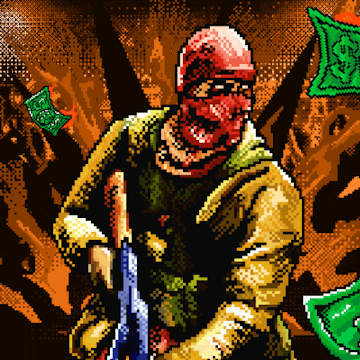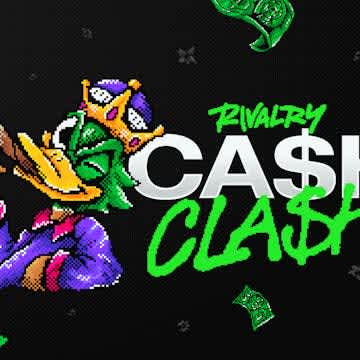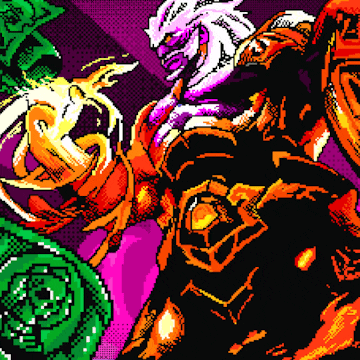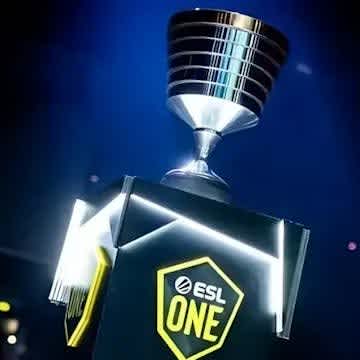FaZe Clan win the conflict-of-interest derby to ring in the CS2 season
IEM Sydney delivered a banger of a grand final and immediately reshuffled the pecking order in the Counter-Strike word as we head into the 2-shaped era, but as so often in esports, the real story happened outside the servers: soon, the two orgs that contested the grand final will be under the same umbrella. It shows how transitive and ethereal esports legacies are and how different this world is from traditional sports.
Sydney delivers again
Australia’s no stranger to awesome CS matches, and this year’s grand final was no exception. It’s fitting that the two teams responsible for all the playoff blowouts finally met their match in a nailbiter of a series where the pendulum kept swinging back and forth, with aggressive, high-octane Counter-Strike from both teams all the way into an epic overtime decider. Each of the three maps turned out to be bona fide bangers, with Ancient giving us an old-school MR15 experience and more to send off CS2’s maiden tournament.
We’ve learned a lot about high-level CS2, and clearly, there’s still a lot more innovation to come, especially as Valve continue to tinker around the edges. From a birds-eye perspective, the tactical additions of the open skyboxes and the nadeable smokes have been fantastic – meanwhile, Tec-9s and Galils seem a bit too crisp for what they cost, especially with fewer rounds to play for with the same economy structure from CS:GO’s MR15.
The resurgence of FaZe and the emergence of CoL both made for excellent stories, and there were many interesting angles to think of and ponder. Whenever karrigan’s not a walking kill reward, FaZe are championship contenders, and it seems like the slight shifts in CS2 and its iteration of the AUG have benefited him greatly. Meanwhile, EliGE outgunned his former brother-in-arms throughout the grand final, but it was Twistzz who got the kill on him in the final round.
It was all super fun and a bright dawn of a brave new era. And yet, with the breaking business news, I found it hard to embrace the action – because it all became a little pointless in the end.
What’s GameSquare’s game? And what does it mean for us?
We learned on October 20, the day of the quarterfinals, that GameSquare, Complexity’s parent company, is about to acquire FaZe Clan. Consolidation is inevitable in an industry suddenly hurting for cash: as Warren Buffett famously said, you don’t find out who’s been swimming naked until the tide goes out.
I heard it through the grapevine that members of the press were not allowed to ask questions about the matter at the event. You know, this reminds me of the old saying: News is something somebody doesn't want printed, all else is advertising.
Wider industry concerns aside, Valve’s conflict of interest rules mean that one of these CS teams will need to be divested by the new industry juggernaut. Seeing either of these teams dismantled would be heartbreaking from a fan perspective, but no matter where they will end up and in what configuration, let’s underline just how unsporting this all is.
Can you imagine Manchester City buying up Liverpool? No, not the international feeder club network method, but outright nabbing a direct rival, demolishing their stadium and liquidating their squad, crossing their logo out of existence with a big spray-painted X. It’s nonsensical, apocalyptic from the perspective of sporting competition.
Billions of dollars flowed into our scene based on the idea that we’re just sports, except digital – now we all know that it was either an error, a false hope, or an outright lie. Fans are loyal to players, not orgs, each with just a few years’ worth of history, running in the red and ready to disappear at a snap of a finger. Legacies belong to players, not orgs, and viewers are not willing to pay for broadcasts.
Hence the pivot to content creation, leaning in on the entertainment angle to make the moolah they couldn’t otherwise. Big-time streamer deals and influencer contracts and Snoop Dogg, and where has it led FaZe Clan? To a stock price nearing penny stock levels and corporate oblivion, soon to be gobbled up by Complexity’s parent company.
And so now there won’t be a nascent rivalry between the two top teams of the early CS2 period, for they will cannibalize each other soon enough.
The egalitarian promise of esports was that the best players and squads can rise to the top – with no need for expensive equipment and years of excessive spending on coaching and travel. You can practice late into the night at home and reach the levels needed just by sheer solo grit and determination. Franchise leagues and gamer politics muddled this purity somewhat over the years, but there was still the unshakeable certainty of a rating number and a K/D stat.
Now, what’s your win worth when your paymasters are about to lose?






